Japan finds our interest in EVs bemusing: How sticking with ICE is slowing the electric transition
I love Japan, and the Japanese people, indeed, I bet they taste like particularly good sashimi, but on my most recent visit there – to drive a new diesel-powered version of Mazda’s CX-60 SUV – I became concerned, disturbed even, at how pitiful their attitude is towards electric cars, and what a large problem that is for the rest of us.
Indeed, at a time when some of the world’s largest cities are less than two years out from banning all diesel cars from their roads to reduce pollution, senior Japanese execs told me they still think diesel has a big future, as do all combustion engines, and then they looked at me with pity in their eyes – like I was some dribbling simpleton – and explained that electric cars were a bit pointless.
And trust me, it’s not just the car companies. I’m sure you can buy a Tesla in Japan, but over three days of driving, past thousands of tiny little cars and funny-looking vans, plus a few Porsches and a Ferrari 296 GTB, I didn’t see one. Not one.
Try and recall, if you will, the last time you drove a whole day without seeing a Tesla? Perhaps it’s because I live in a large city, Sydney, with zillions of people who can afford a $70K-plus car, but I rarely go an hour without seeing one, and I’d usually spot a few other EVs during any given day on the road.
And yet, in Japan, not one, nor a single Nissan Leaf. And they don’t seem to buy any Korean cars, let alone Kia EV6s or Hyundai Ioniqs. I saw some Mazda MX-30s, but they were sitting unloved in a Mazda storage yard, not on the road. Nor did I see a single charging station for EVs, not on the roads, not in my hotel car park, or any car park. I’m talking even fewer than Australia.
Speaking of which, in Japan the percentage of sales made up by full BEVs is around 1 percent, which, astonishingly, is even less than here. In 2022 in Australia EVs made up 3.1 percent of all sales and for the first two months of 2023 EVs are accounting for more than 6 percent of sales.
Mazda’s program director for the CX-60, Kohei Shibata, told me that Mazda never considered giving its large SUV a full electric set up, as some competitors, like Genesis, are doing. He believes diesel, with all of its very special particulates and nitrous oxides, is a better option.
“My personal view that if you look around there are many people who don’t have any charging equipment, there’s no charging stations, and given that, maybe a diesel is very practical, because it can drive a long distance,” Shibata said.
“We still very much believe that combustions engines have a future, in those countries where electricity is generated using fossil fuels, like here in Japan and in Australia, because an EV is not particularly friendly to the environment in those places.”
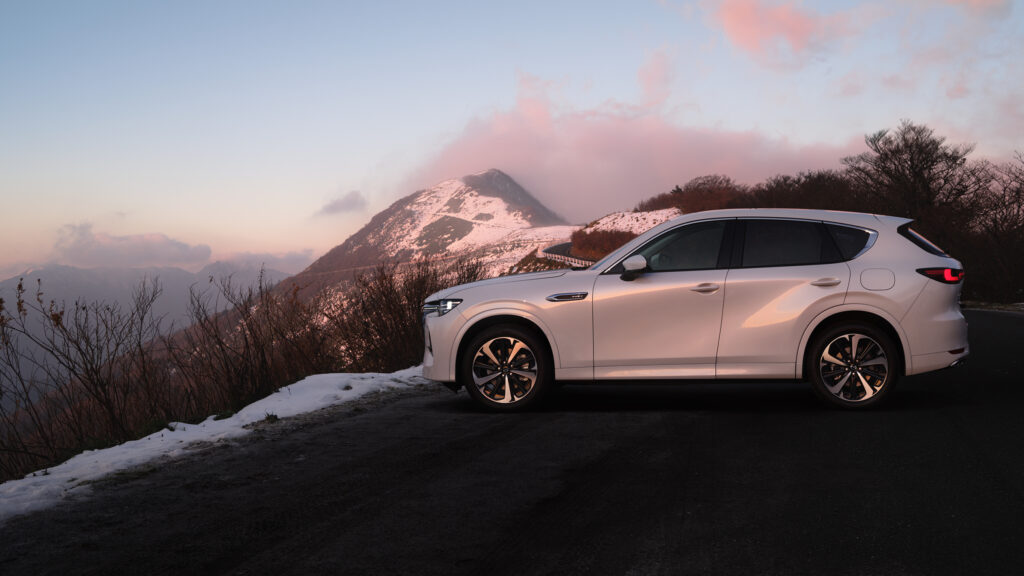
This is Mazda’s wheel-to-well theory of EVs, which posits that a combustion-engined car driven in Japan would – when the total impact of a vehicle is considered, from construction to end-of-life recycling – produce less CO2 than an EV, up to distances of 110,000km.
And it’s obviously a theory shared, at least in part, by other Japanese car companies, which haven’t exactly been in a mad hurry to join the global rush to electric vehicles.
Speaking to Japanese locals, it quickly becomes clear that, as is often the case, they are mildly amused by what the rest of the world is doing, if they’re aware of it at all. They are too polite to say it, but they clearly think we are fools and that, eventually, we’ll realise they were right all along. As usual.
The problem is, we buy a lot of Japanese cars – everyone does. The world’s biggest car company is either Toyota or Volkswagen, depending on who you believe, but considering how many brands make up the VW Group, let’s give it to Toyota.
If the Japanese don’t believe in EVs, or really take them seriously, it’s going to leave a bit of a hole in the market, at least as long as they continue to drag their heels (yes, Toyota and Lexus EVs are coming, but how many?).
Japan believes it was right about hybrids being the way forward and that the global success of the Toyota Prius proved it, but now that we really need to be going full EV, buying Japanese is going to get more and more difficult, creating a space that the Chinese brands, and others, will try to fill.
If only someone could convince the Japanese they’re on the wrong track. Good luck with that.

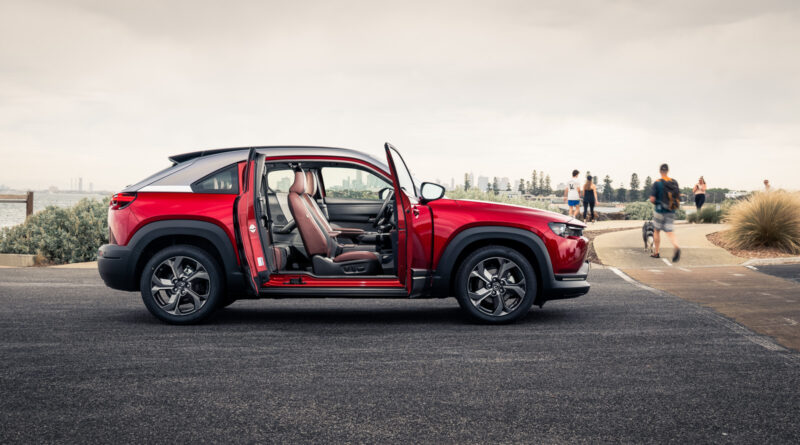
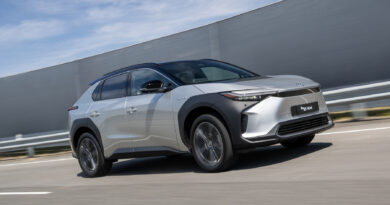
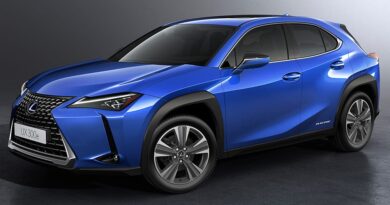
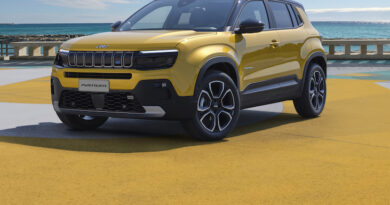
Its simple, the majority is older then most countries if not all. So they are most used to seeing ICEs and least reluctant for any kind of change, floppy disks flip phones etc.
Electric infrastructure needs to keep up with EVs.
I might suggest that with its large population, Japan believes it needs to cater for all of its populatio, not just the more well off individuals who can afford an EV. The infrastructure needs to be shared by all.
Isn’t Lithium running out in 2050….why are they only 12 Hydrogen fueling stations in the UK when you can manufacture it from waste or sea water…have you tried pulling a trailer with an electric vehicle..it’s a joke…Toyota have invested in the UK for H2 commercial vehicles…now there’s the future..along with H2 Aviation
H2 has a place, as long as it is nowhere near where I live. It is highly explosive, easily ignited and 100% containment difficult. It is expensive to produce. A molecule of H2 is so small it can migrate through the crystalline structure of metals. Hence the need for specialised sealing systems.
It is possible that leaking H2 (and it will leak) may contribute to greenhouse gasses. No doubt solutions will be found eventually. Fusion power will resolve a lot of issues, but that will help the BEV situation too. And no, Lithium is not running out. Lithium based batteries are 100% recyclable. Battery technology is improving all the time.
I’m not convinced that a flying bomb is a good idea. Ships are more suited, but again all that hydrogen …. I won’t be on one! I do have industry experience.
And Japan’s lack of interest in the current EV revolution is bemusing to the REST OF THE WORLD. It shows the retrograde influence of a few corporate giants on its gov’t and population. Perhaps they should just bring back the horse and buggy.
Steve, perhaps the Japanese are right and the EV pushers, such as yourself, are wrong! What is never discussed in the push to put us into EVs is the energy required to produce special minerals that EVs need in their batteries and other componentry needed to produce EVs components, and the end-of-life problems that batteries are currently creating. There are very few locations around the world that can efficiently recycle the components in the batteries, and those that do use ‘bucketloads’ of energy.
Consequently, any savings in energy and therefore ‘pollution’ created in driving an EV will be cancelled out in the manufacturing process and the end-of-life recycling.
And how can EV owners guarantee that the energy they charge their batteries with is 100% green??
Forcing Australians into EVs will mean our way of life will change dramatically. There will be fewer holidays in the family car as the EV range will not permit the style of holidays we currently enjoy. I can see, therefore, fewer people will be employed in hospitality, accommodation, ‘service stations’, holiday destinations will close, unemployment in rural areas will increase, the list goes on.
I am glad that I am nearing the end of my life, rather than just staring off. Life as we know it will disappear. All that to save maybe 50% of 1.3% of the world’s pollution!
There’s a lot of work going into how much energy is required to manufacture and run an EV. Polestar is one manufacturer that publishes regular updates on its Life Cycle Assessment. BloombergNEF last year published a Zero-Emissions Vehicles Factbook that had lots of interesting data; check page 36 of the report.
Regarding recycling, you’re right in that there aren’t many places that recycle batteries yet. But batteries are highly recyclable and the industries are expected to develop as more cars hit the road.
The “EV pushers”? Oh, you mean the realists? I keep hearing this allegation from right-leaning loons, that I’m somehow pushing EVs, but the fact is I just drive and write about whatever new cars are being launched and, as even you would have noticed, a lot of them are EVs. That’s because the car companies have accepted, as I do, the SCIENCE of climate change, which means we have to move towards decarbonisation and zero-emission transport, as fast as we can.
This idea that forcing Australians into EVs will “change our way of life dramatically” is just such utter poppycock. Every week I talk to yet another person who’s bought an EV, usually a Tesla, and they do say it’s changed this lives, for the better. They’re all madly in love with them. Other than grey nomads, this idea that all of us enjoy holidays that involve driving long distances is so based in the past that it’s laughable. As is the idea of service stations and holiday destinations closing – are you Cormac McCarthy in disguise, Neil? What about charging stations, wouldn’t they replace service stations, or just repurpose them? And won’t they, in fact, at least for a while, make more money as people linger longer on their forecourts? I have to say I’m not surprised to hear that you’re nearing the end of your life, because the inability to accept change and obvious facts that don’t sit with your strict views of how life should remain as it always has been are such strong indicators of Old Person thinking (and before you others pile in, I’m not saying ALL old people are like that, but it surely is a noticeable trend).
Japan are an exporter. They are completely buggered it doesn’t matter what they do domestically they won’t sustain their large number of ICE makers.